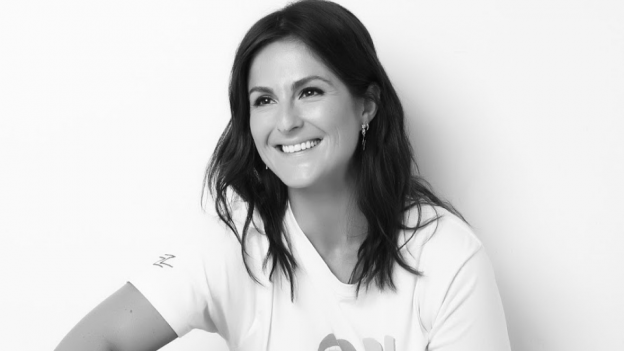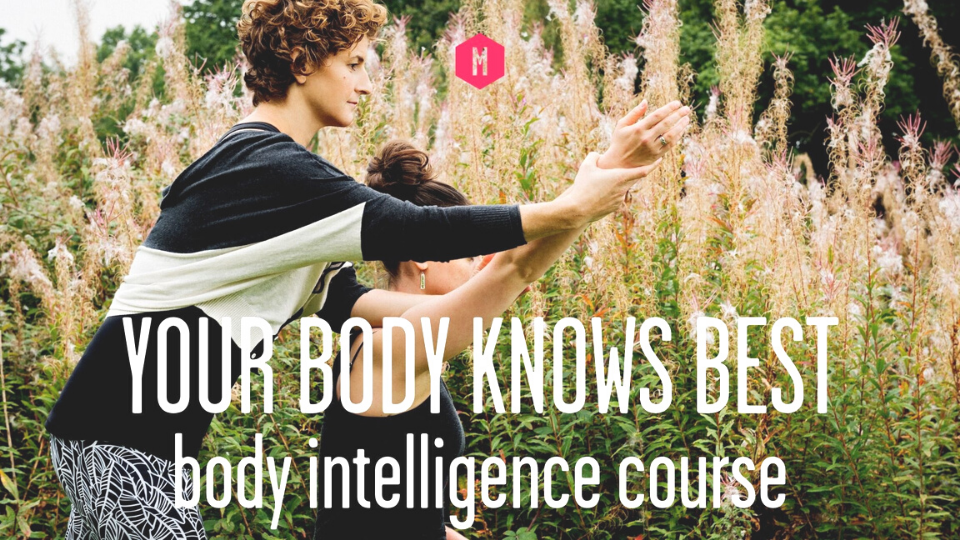
And a tasty Kale, Apple & Walnut Salad recipe!
These days nutrition advice is everywhere – on your social media, in newspapers & magazines – and it seems that every few months a new diet comes along that claims to be superior to all others – the solution you have been looking for. How can it be that nutrition advice constantly changes and contradicts itself – and how do you sort through that in order to understand what is right for you, and listen to you body?
GET UP CLOSE AND PERSONAL
Let’s start by accepting that when it comes to nutrition – one size does not fit all.
We need to remember that a personalised approach is important – this is because biologically we are all unique. This comes down to our microbiome – the same meal eaten by two people could impact them completely differently. Our microbes produce different responses to different foods, and as a population we only have about 30% of microbes in common. If we were to recommend the same diet for everyone, it would work for some, but not for others and for some people it may be extremely difficult and potentially damaging. Take the current trend of low-carb, high-fat – some may thrive on that, others may feel fatigued and find life very difficult.
Similarly with plant-based diets going mainstream – without an understanding of the nutrients your body needs, and the right supplementation – you could end up deficient and suffer serious health issues down the line.
Read more about yoga for stress and anxiety in this complete guide
DO:
- Consult a health professional: your GP or a registered nutrition professional should be your first port of call before you make any major diet changes. They will be able to advise you on which supplements you may need, and run blood tests if necessary (for example to determine if you are in need of Vitamin D, Iron or B12).
- Look after your gut health: typical signs and symptoms of dysbiosis (a disturbance to the microbiota) include cramping, persistent diarrhoea, bloating and indigestion, but can extend to fatigue, anxiety and depression too. If you have taken multiple courses of antibiotics, been eating a diet low in fibre and vegetables or been drinking more than two alcoholic drinks daily, your gut could probably use some love.
- Go slowly: if you decide you want to go vegan, don’t go all out in the first week. Make swaps and changes as you go along, adding in vegetables where you can. If you aren’t used to eating a lot of pulses, add these slowly starting with a tablespoon, to give your gut time to catch up and avoid bloating (which might put you off entirely!)
DON’T:
Follow what someone else is doing, if they are not qualified to give you personalised advice.
CALL IN THE EXPERTS
Taking health advice from the wrong source is easy to do – when we see ‘transformations’ they can be really compelling. However, blindly following what someone is doing could be harmful – from taking weight loss supplements to extreme fasting and following diets that are nutritionally deficient. If you were to take certain advice, you might be recommended a calorie count of under 1200 kcals daily – that’s closer to a child’s needs and could be harmful for a grown woman.
The trend for intermittent fasting is still going strong – but for some people fasting could really compromise your hormone health. It can be frustrating when what works for one person doesn’t get you the results you are looking for – again this is down to individual metabolism and needing a personalised approach from a health professional.
DO:
Empower yourself with knowledge: there are excellent resources available from qualified professionals. Here are some favourites:
- The Food Medic – Dr Hazel Wallace has a fabulous site full of well-researched articles.
- Rhiannon’s Lambert’s book The Science of Nutrition is an amazing resource, as is her website.
- How to Be Well by Dr Frank Lipman
- How Not to Die by Michael Greger
- Dr Chatterjee’s books are full of common sense advice that fits a wide demographic.
TO SUPPLEMENT OR NOT TO SUPPLEMENT?
It’s important to use your common sense – if you are struggling with signs of a deficiency such as recurring colds or infections, brain fog, low mood, cold sores, low energy and feeling run down – go and see your GP who will arrange for blood tests, or seek out a nutrition professional.
- If you are eating a healthy, balanced diet then it is likely that you will be getting your required nutrients from food, however if you exclude certain food groups, you do need to supplement.
- If you are a mostly plant based or vegan eater you will need to take a B12 supplement daily (recommended – BetterYou Boost) as well as an omega 3 supplement (recommended – Bare Biology Life & Soul Omega-3 Fish Oil).
- When you are a person who menstruates and your periods are on the heavy side – get your iron levels checked (from your GP). Non-haem iron (from plants) is difficult to absorb so anaemia becomes more common.
The side effects of deficiencies can be insidious. Even if you feel fabulous on your new diet, it can take years for deficiencies to reveal themselves, and by then it might be too late. B12 deficiency can damage the myelin sheath (which transmits signals between nerves), causing problems with your central nervous system.
Biohacking and taking megadoses of certain nutrients is popular now – be wary of pseudoscience and remember that marketing exists to make money. The sheer scale of the wellness industry now makes it very difficult to regulate. Often evidence can be anecdotal or cherry-picked, which can present a misleading narrative. Megadoses could be harmful at worst and ineffective and expensive at best! Those taking medication must speak with their doctor before taking any supplements as they may interfere with the medication causing a change in efficacy and potentially harmful side effects.
YOUR BEAUTIFUL BODY
The wellness industry – as well as government policy – has a habit of presenting a certain body size as “healthy”. The perception of being slim being healthy is damaging in many ways – when we focus on weight rather than health, the desire to lose weight can mean resorting to fads and quick-fixes such as taking dangerous pills or excluding food groups, which is detrimental to health. Being overly slim too, comes with complications – compromised bone health, anaemia, a lower immune system and irregular periods are common at a very low BMI.
Health is far more complex than weight – changing the goal from being slim to being healthy would empower people to develop healthy habits and develop a better relationship with your body as well as with food.
Intuitive eating is a weight-inclusive way of thinking that doesn’t assume that lower weights are associated with good health, and vice-versa. Done properly it goes completely against diet culture, it means tuning into your body’s needs rather than subscribing to the idea that you should be following any kind of diet plan, counting calories or copying what someone else is doing. It means paying respect to your body and the fact that you are an individual with your own needs.
DO:
- Focus on your health: make sure that you have got the basics right: sleep, vegetables, fibre and water.
- Listen to your body: connect to your body, take time over meals and listen to what it likes. Signs of irritation such as skin or gut issues are trying to tell you something. Keep a diary and track your symptoms and use that to start a conversation with a GP if you are concerned.
- Try the ‘Your Body Knows Best: Body Intelligence Course’ on MFML.
Our bodies are far too complex for a one size fits all approach. Stay curious and sceptical – if something sounds too good to be true it probably is! Good nutrition is just one part of the puzzle – we need to work on getting the fundamentals of movement, sleep, relationships and mental health working in harmony with what we consume in order to feel in balance.Try to see the bigger picture rather than short-term, quick fixes and always seek the advice of a professional if you are unsure. And yoga, always do yoga.
RECIPE: Kale, Apple & Walnut Salad
Ingredients
4 handfuls kale or cavolo nero, stalk removed, shredded
1 tbsp extra virgin olive oil
Juice of 1 lemon
2 pinches sea salt
1 apple, skin on, chopped
1 handful walnuts, quartered and toasted
125g halloumi, diced and fried or 125g feta, diced
Preparation
Massage the oil, lemon juice and salt into the kale until it starts to break down and soften
Toast the walnut pieces in a dry pan and then add to the salad
Add the apple and your choice of cheese to the salad and toss well
Nutrition
Rich in fibre, iron, protein, magnesium.
Note: this could be made vegan by using a vegan cheese alternative or tofu. Alternatively you could leave out the cheese and make a tahini sauce with tahini, garlic, yoghurt & lemon.

Ready in 5 minutes
Serves 2 as a main, 4 as a side
Read more in Yoga for Stress and Anxiety: A Complete Guide

Lindsey Whistler MA, Nut. Dip.
Lindsey is a Registered Nutritional Therapist with ANP and also holds an MA from St Andrews University. Lindsey runs her own practice and consultancy in Bath and online.
If you would like any more information please feel free to contact Lindsey for a free 20-minute call. Contact lindsoloves@gmail.com or DM @lindsolovesfood
SPECIAL OFFER: 30% off an initial & follow up appointment with Lindsey when you mention MFML when booking






Leave a Reply